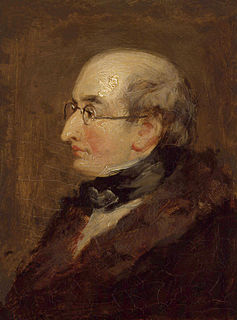A Quote by Stephen Fry
I have always been an impassioned advocate for the works of Shakespeare. I regard him as one of the most complete miracles of his or any other age.
Related Quotes
Consider any individual at any period of his life, and you will always find him preoccupied with fresh plans to increase his comfort. Do not talk to him about the interests and rights of the human race; that little private business of his for the moment absorbs all his thoughts, and he hopes that public disturbances can be put off to some other time.
It has been jestingly said that the works of John Paul Richter are almost unintelligible to any but the Germans, and even to some of them. A worthy German, just before Richter's death, edited a complete edition of his works, in which one particular passage fairly puzzled him. Determined to have it explained at the source, he went to John Paul himself. The author's reply was very characteristic: "My good friend, when I wrote that passage, God and I knew what it meant; it is possible that God knows it still; but as for me, I have totally forgotten."
The most extraordinary of all the things called miracles, related in the New Testament, is that of the devil flying away with Jesus Christ, and carrying him to the top of a high mountain; and to the top of the highest pinnacle of the temple, and showing him and promising to him all the kingdoms of the world . How happened it that he did not discover America? or is it only with kingdoms that his sooty highness has any interest.
If someone does something we disapprove of, we regard him as bad if we believe we can deter him from persisting in his conduct, but we regard him as mad if we believe we cannot. In either case, the crucial issue is our control of the other: the more we lose control over him, and the more he assumes control over himself, the more, in case of conflict, we are likely to consider him mad rather than just bad.

































